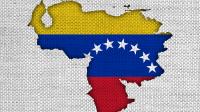Transfer pricing: no deemed interest on royalties not paid due to currency restrictions
The Danish Eastern High Court held on 20 October 2021 that a Danish parent company was not subject to tax on deemed interest on royalties due but not paid by its Venezuelan subsidiary because of currency restrictions in Venezuela.

Background
A Danish company was the ultimate parent of a group of companies that included, i.a., a Venezuelan subsidiary. In 1992 and 1999, the Danish parent company and the subsidiary in Venezuela entered into a “Sublicence Agreement” and a “Trademark Licence Agreement”, granting the subsidiary a sublicence right and a licence right to a number of the Danish parent's trademarks.
In 2003, as a result of the negative development in the Venezuelan economy, the "CADIVI" system was introduced to limit capital flight from the country. All foreign currency trading had to take place via the Venezuelan National Bank, including payments of royalties in USD. In the period 2008-2013, the Danish parent company was entitled to royalty payments of approx. DKK 620 million, but the Venezuelan authorities only approved a single payment of DKK 170 million. As a result, the subsidiary accumulated significant royalty debt to the Danish parent company in the period.
In 2015, the Danish Tax Agency increased the Danish parent company's taxable income with deemed interest on the unpaid royalties, arguing that interest should be charged on arm's length terms and that a third party creditor would have claimed interest.
The Eastern High Court's judgment
The Eastern High Court states that it is possible to question the legitimacy of interest on a receivable that has arisen as a result of non-payment of royalty between group companies such as the Danish parent company and the Venezuelan subsidiary, see s. 2 of the Danish Tax Assessment Act (codifying the arm's length principle in Danish law). The question is whether there is basis for deeming interest to the Danish parent company on the royalty claim unpaid by the subsidiary. Such an adjustment must, where appropriate, take place on terms that could have been obtained if the claim had arisen between independent parties. The right to make adjustments thus rests, i.a., on the assumption that the lack of interest on the royalty claim is not commercially justified and that there is, in fact, a basis for comparison to a debtor independent of a creditor in another country.
In assessing whether those conditions are met in the present case, it must be held, according to the information given to the High Court, that the subsidiary essentially operated in Venezuela, and that in Venezuela, during the income years in question, there were exceptional political and economic conditions. According to the documented information this meant that the subsidiary operated in an unstable and unpredictable business policy climate where generally known operating conditions and market forces were generally put out of force. This entailed, among other things, an atypical and restrictive state monetary control with strict restrictions on legal acquisition, possession and export of foreign currency, a latent risk of reprisals and even nationalization of companies, very high domestic inflation, periodic price controls on selected products, and the need to import even basic raw materials and spare parts.
The High Court further takes the view, in accordance with some of the explanations given, that the Venezuelan currency - bolívar - in the income years in question could not be exchanged for other common currency outside Venezuela, that exchange of bolívar in Venezuela could only take place with the permission of Venezuelan state authorities, and that international lenders - due to the above peculiarities - did not provide loans to companies established and operating in Venezuela.
It must also be assumed that the subsidiary, in terms of both revenue and profit, proportionally constituted a very significant company in the group, and that the group as a whole was therefore dependent on the subsidiary's results. The parent company was thus significantly negatively affected by the atypical conditions to which the subsidiary was subject, including the fact that the parent company could not recover dividends or royalty payments from its subsidiary. According to the information on the subsidiary's turnover and operating results in the income years in question, the subsidiary was able to pay the royalty receivables, and no business benefits have been demonstrated for the parent company by failing to retrieve royalty payments. On the contrary, the parent company's unpaid royalty claim was continuously subject to significant inflation and always subject to currency restrictions, just as the creditworthiness of the claim was negatively affected by the general uncertainty associated with the subsidiary operating in Venezuela. It must also be assumed that the subsidiary, in accordance with the parent company's overall interest, initiated the necessary measures to obtain permission to pay royalties to the parent company in Denmark within the legal and administrative framework which the company was subordinated to in Venezuela, and that the company was only allowed to do so to a modest extent under the circumstances.
Finally, it must be assumed that the licences for which the subsidiary was required to pay royalties - calculated in bolívar - concerned trademarks for processed meat products, which were essentially only sold by the subsidiary in Venezuela, and that the brands had limited value to parties other than the parent company and the subsidiary, which held a significant market share of the Venezuelan market for processed meat products. Termination of the licence agreements due to the subsidiary's non-payment of royalties would therefore not - not even for independent parties - have been an option or a commercially justified disposition, as it is assumed that the subsidiary could have continued its business without major difficulties under other brand names.
The High Court subsequently concludes, on the grounds stated above, that there is no basis for establishing that the lack of return on the parent company's royalty claim against the subsidiary was not commercially justified. The High Court further notes that the Ministry of Taxation has not established a genuine basis for comparison in the form of contractual terms for a claim in bolívar between a debtor in Venezuela and a debtor independent of a creditor in a third country.
The National Tax Tribunal found that, as a rule, an interest claim will arise on a receivable resulting from non-payment of royalties between group-related parties. On that basis, the Danish Tax Agency was entitled to deem a non-payment of interest to the parent company.
However, it is undisputed in the case that the group's activities in Venezuela are subject to completely extraordinary circumstances. It must therefore be assessed whether the force majeure clauses in the licence agreements enter into force and thus exempt the subsidiary from its payment liability.
In the relevant case, the National Tax Tribunal assumes that the subsidiary could not have paid royalties in accordance with applicable national law in addition to the specific payments for which the subsidiary received permits in 2010. The subsidiary has reportedly complied with all the necessary formalities to make the royalty payments in USD. The non-payment is therefore found to be solely a consequence of the restrictions imposed by the Venezuelan authorities.
The force majeure clause of the 1992 licence agreement mentions restrictions by public authorities as a valid reason for non-compliance which exempts the parties from liability. The fact that this is not specifically mentioned in the licence agreement of 1999, including the renewed agreement of 2009, cannot be regarded as an indication that a specific position has been taken that such circumstances should no longer be covered by the force majeure clause. Emphasis is here placed on the fact that the examples mentioned in the clause are not exhaustive, and that in both agreements emphasis is placed on incidents that are “beyond reasonable control of the affected parties”.
These restrictions by the Venezuelan authorities are considered to be beyond reasonable control of the companies and therefore fall within the scope of the force majeure clauses in the licence agreements. Thus, the subsidiary was temporarily relieved of its payment responsibility. The National Tax Tribunal further notes that the parties could not have foreseen the introduction of the currency restrictions at the conclusion of the agreements. Whether the parties were aware of the circumstances at the time of delivery cannot be found relevant in the case, as force majeure clauses must be assessed on the basis of the parties' knowledge of the circumstances and conditions at the time when the agreements were entered into.
The National Tax Tribunal further concludes that the Danish Tax Agency has not proved that an independent claim would have arisen between independent parties in the same specific circumstances as a result of a similar receivable.
Contact

